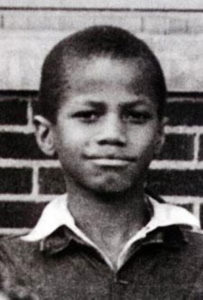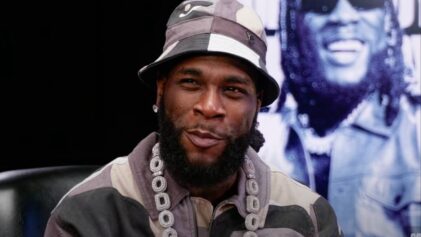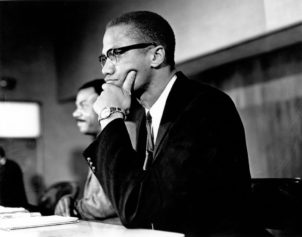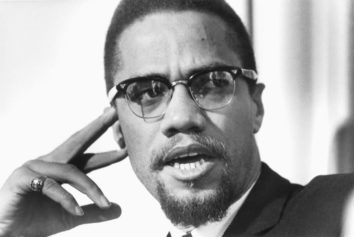This week marks the 50th anniversary of the day that one of the Black world’s fiercest warrior poets was taken away from us by an assassin’s bullet.
When Malcolm X fell on that stage in Harlem’s Audubon Ballroom on Feb. 21, 1965, his last breaths squeezed from his lungs and a brilliant, beautiful life was extinguished. But somehow in death he proved to be an even more indomitable force than he was in life. It’s been 50 years, but every word Malcolm X uttered or wrote still resonates for the Black community as the screenplay for our bondage and oppression in America.
He was uncompromising in his demands of white America, his belief that integration was not the savior that many Black people hoped it would be.
This was Malcolm’s view of equality: “If you have a dog, I must have a dog. If you have a rifle, I must have a rifle. If you have a club, I must have a club.”
At a time when Black people have seen in recent months the empty promises and false hopes that 50 years of integration have wrought, Malcolm’s words, all of them, ring strong and prophetic.
“When we see that our problem is so complicated and so all-encompassing in its intent and content, then we realize that it is no longer a Negro problem, confined only to the American Negro; that it is no longer an American problem, confined only to America, but it is a problem for humanity,” Malcolm said.
Has there ever been a figure whose life represented a more fitting metaphor for the struggle of the Black man in America to successfully break free from the physical and psychological chains that bind us in a land whose creation was fueled by our blood and sweat? Malcolm’s life span was the arc of Black male masculinity—terrorized, infantilized, matured and globalized.

Malcolm took a circuitous route to get there, but the fire of the struggle for Black freedom and self-determination clearly burned in his DNA. The family’s home in Lansing, Michigan, was burned to the ground in 1929 and his father was killed in 1931, his body found lying across the town’s trolley tracks—though both acts were called “accidents” by the authorities. His mother couldn’t withstand the pain and was committed to a mental institution, which scattered Malcolm and his seven siblings to foster homes and orphanages.
Malcolm had fallen into serious criminal activity by the time he had reached his late teens. This is when he acquired the moniker “Detroit Red,” because of the color of his hair. In 1946, along with his best friend Malcolm “Shorty” Jarvis, he was convicted of burglary and spent seven years in prison. While locked up, he delved into books, turning himself into a scholar. He was introduced to the Muslim religion by his brother Reginald, a member of the Nation of Islam.
With his brilliance and articulation, Malcolm eventually became the most famous member of the Nation, his fame even eclipsing that of founder Elijah Muhammad. His charisma helped the Nation’s membership grow from 500 in 1952 to 30,000 in 1963, according to figures provided on the website MalcolmX.com.
A growing disillusionment with the Nation moved Malcolm to terminate his relationship in March 1964 and found his own religious organization, the Muslim Mosque, Inc. He also went on a pilgrimage to Mecca that same year, which significantly globalized his perspective on religion and race.
With repeated attempts on his life and a now-testy relationship with the Nation of Islam, Malcolm didn’t travel anywhere without bodyguards. But his enemies caught up to him at the Audubon Ballroom, when three gunmen rushed him onstage and shot him 15 times at close range. At the painfully young age of 39, this courageous leader was pronounced dead on arrival at New York’s Columbia Presbyterian Hospital.
Three men, all members of the Nation of Island, were convicted of first-degree murder in March 1966—Talmadge Hayer, Norman 3X Butler, and Thomas 15X Johnson.
But Malcolm’s power wasn’t diminished and, in fact, grew after his death, helped substantially by the autobiography he wrote with Alex Haley. That’s the beauty of the written word—his brilliance will be with us always.


